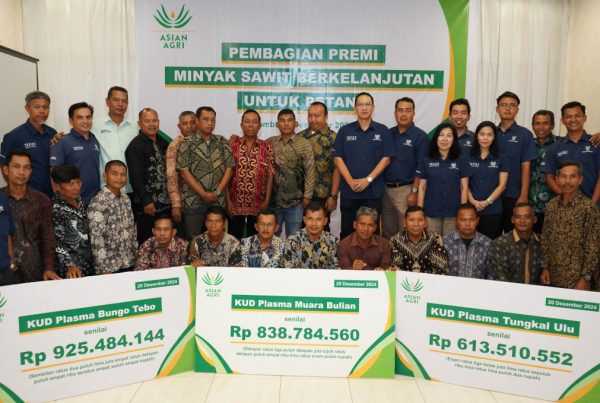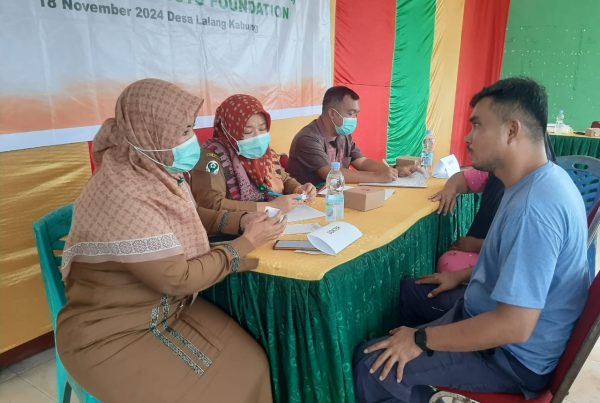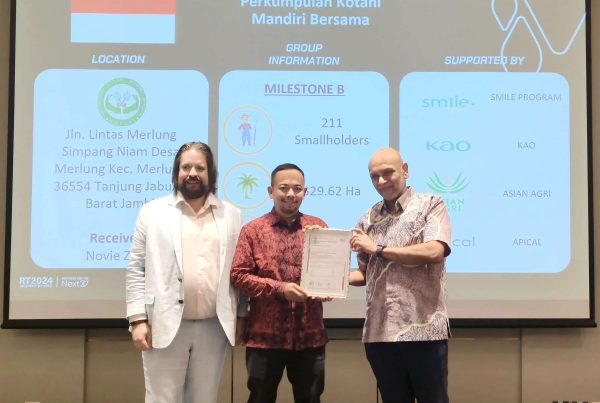Among other things, the program aims to make traceable the palm oil produced by 10,000 smallholders, covering an area of 20,000 hectares, as well as prepare 1000 smallholders for sustainability certifications.
Desi Kusumadewi, IDH senior program manager for palm oil, states that supporting smallholders in this way will pave the way towards landscape level production-protection or or supply shed.
The program is expected to be operational for 3-5 years. The program will map out the smallholders, analyze the supply chain, and train smallholder farmers on sustainable production and legitimization. An over-arching activity will be monitoring and evaluation of the progress.
The Director of Asian Agri, Freddy Widjaya: “Supporting smallholders is vital for increasing productivity in palm oil and creating a more secure market. Our collaboration with IDH and SETARA is one commitment to assure that smallholders receive the knowledge and expertise needed to produce sustainably and thus earning higher profits.” Asian Agri, sources half of its palm oil from smallholder farmers. The company has committed to support smallholders in 60,000 hectares of land by 2020. The collaboration with IDH and SETARA is a first step towards achieving that goal.
Indonesia is the world’s biggest producer and consumer of palm oil, accounting for roughly half of world production of the oil. Private companies produce 51 percent of Indonesia’s palm oil, smallholders produce 42 percent and government owned plantations account for about 7 percent of the national output.


![[IDH] IDH partners with Asian Agri and Setara to support 10,000 palm oil smallholders in Indonesia](https://www.asianagri.com/wp-content/uploads/2015/06/Media-Default-Image.png)


